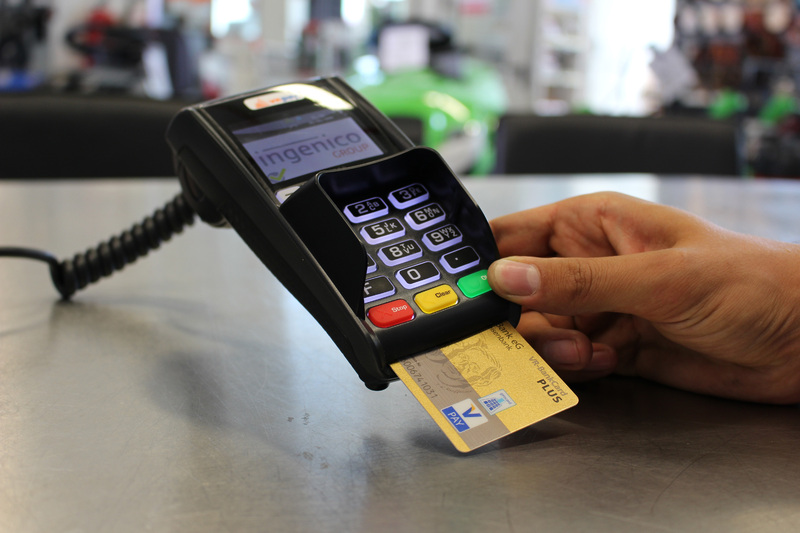Balancing your budget while still indulging in life’s little luxuries may seem like a juggling act, but there are shortcuts that can make it far more manageable. Imagine a financial strategy that allows you to save for that dream vacation or the Birkin bag you’ve been eyeing, without sacrificing your morning oat milk latte. Here’s where savvy meets style: we’ve curated a list of 14 financial shortcuts that actually work, serving up some serious money moves with a side of chic.
1. Automate Your Savings

You know that feeling of finding a forgotten $20 in your coat pocket? Automating your savings is kind of like that, but better. By setting up automatic transfers, you’re paying yourself first without even thinking about it. The beauty of this method is its simplicity—you’re saving without the hassle of remembering to do so, which makes the process virtually painless. According to a study by the National Bureau of Economic Research, people who automate their savings are more likely to reach their financial goals. So go ahead, set it and forget it, and watch your savings account grow while you focus on living your best life.
Automation isn’t just about sheer convenience; it’s about creating a habit that sticks. With every paycheck, a predetermined amount goes straight into your savings account, leaving you with a clear picture of what’s left to spend. This habit builds financial discipline over time, turning your savings into a non-negotiable part of your budget. It’s the financial equivalent of meal-prepping for the week; once the decision is made, you don’t have to think twice. Whether you’re saving for a rainy day or a sun-soaked escape, automating your savings can bring you one step closer to achieving your goals.
2. Embrace A Minimalist Lifestyle

Minimalism isn’t just a home decor trend—it can revolutionize your financial habits, too. By decluttering your spending, you can identify what truly brings value to your life and cut out the rest. It’s about making intentional choices and focusing on quality over quantity. This doesn’t mean eliminating all indulgences but rather curating them to serve your deepest desires and needs. By adopting a minimalist mindset, you can reduce financial stress and create space for the things that truly matter to you.
Imagine freeing yourself from the constant cycle of buying and accumulating. When you embrace minimalism, you shift your focus from possessions to experiences, reducing the urge to impulse-buy. Owning less can lead to a simpler life, where your finances are no longer bogged down by clutter. As you become more selective, you may find that you spend less on temporary thrills and more on meaningful investments. Minimalism can pave the way for financial clarity, allowing you to see the bigger picture and prioritize what truly adds value to your life.
3. Use Cash Back and Rewards

Leveraging cash back and rewards programs can stretch your dollars further than you might imagine. By using credit cards strategically, you can earn points or cash rewards on everyday purchases. The key is to pay off your balance in full each month to avoid crippling interest charges. According to a report by the Consumer Financial Protection Bureau, people who utilize these programs effectively can save a significant amount annually. When used wisely, these programs can be a powerful tool in your financial arsenal, offering benefits that go beyond mere convenience.
Maximizing your rewards goes beyond just swiping your card for every transaction. It’s about aligning your spending with the rewards program that offers the most return for your lifestyle. Whether it’s travel points, grocery discounts, or cash back on dining out, the right program can make your everyday expenses work for you. However, it’s crucial to not let rewards lure you into overspending. Staying disciplined and focused on your financial goals ensures that you reap the benefits without falling into a debt trap. Smart use of rewards can enhance your financial health, adding a little extra sparkle to your spending.
4. Practice the 30-Day Rule

Impulse buying can derail even the most meticulously planned budgets, but the 30-day rule is a simple antidote. The concept is straightforward: if you find yourself tempted by an unplanned purchase, wait 30 days before buying it. This cooling-off period helps you determine if it’s a fleeting desire or a genuine need. Often, you’ll find that the urge has passed, saving you money and potential buyer’s remorse. This rule can transform your shopping habits, making your approach to spending more mindful and intentional.
By practicing the 30-day rule, you’re giving yourself time to evaluate the true value of your potential purchase. It’s about creating a buffer between impulse and action, allowing you to reflect on whether the item aligns with your financial goals. During this time, you might discover alternative ways to achieve the same satisfaction without spending. This pause can also reveal patterns in your spending triggers, helping you to address them more effectively. Over time, the 30-day rule can cultivate a habit of thoughtful consumption, enhancing your long-term financial wellness.
5. Prioritize Paying Off High-Interest Debt

When it comes to tackling debt, focusing on high-interest rates can save you money in the long run. By prioritizing these debts first, you reduce the amount of interest you’ll pay over time. Start by listing all your debts and their interest rates, then target the highest ones with extra payments while maintaining minimums on the others. The Federal Reserve emphasizes the importance of reducing high-interest debt to improve financial stability. This strategy not only accelerates your debt repayment but also boosts your overall financial health.
Paying off high-interest debt requires discipline and a clear strategy. As you chip away at these burdensome loans, you free up more money each month for your savings and other financial goals. It’s like removing a heavy weight that’s been hindering your financial progress. To stay motivated, track your progress and celebrate small victories along the way. Each payment brings you closer to financial freedom, empowering you to take control of your economic future with confidence.
6. Create a Sinking Fund

Sinking funds are a savvy way to prepare for future expenses without derailing your budget. By setting aside a little each month for specific upcoming costs, you can avoid financial surprises. Think of it as a dedicated savings account for predictable yet irregular expenses like holiday gifts, car repairs, or annual subscriptions. This proactive approach smooths out your cash flow, making it easier to manage your finances throughout the year. With a sinking fund, you’re not caught off guard when these expenses arise, and you can enjoy them stress-free.
Establishing a sinking fund is about forward-thinking and planning. It requires you to anticipate and categorize potential expenses well in advance. By breaking down large costs into manageable monthly savings, you prevent them from becoming financial burdens. This strategy not only reduces stress but also helps you maintain a balanced budget. Over time, you’ll appreciate the peace of mind that comes from being prepared, knowing that you’ve set yourself up for success no matter what life throws your way.
7. Negotiate Your Bills

Negotiating your bills is an underrated skill that can lead to significant savings. Many service providers are open to reducing rates or offering discounts if you simply ask. From cable and internet to insurance premiums, there are often better deals to be had for those who take the initiative. A study by Consumer Reports found that people who negotiate their bills often save hundreds annually. Taking the time to make a few phone calls can be a game changer for your budget, freeing up money for other priorities.
Approaching bill negotiations with confidence can yield surprisingly positive results. Start by researching competitive offers and knowing your worth as a customer. Remember, companies value your business and may offer incentives to keep you from switching providers. Be polite but firm, and don’t be afraid to ask for what you want—or threaten to leave if necessary. By honing this skill, you not only save money but also gain a sense of empowerment over your financial obligations, making each dollar stretch further.
8. Meal Prep to Avoid Eating Out

Meal prepping is a practical way to maintain a healthy lifestyle while keeping your grocery bill in check. By planning and preparing meals in advance, you can avoid the temptation of last-minute takeout, which often costs more. Start by setting aside a day to plan your meals for the week, list out your ingredients, and prep them ahead of time. This routine minimizes waste and maximizes efficiency, ensuring you have delicious, nutritious meals ready when you need them. Plus, it turns cooking into a stress-free task, leaving you more time to enjoy doing what you love.
Embracing meal prep doesn’t require a culinary degree—just a little organization and commitment. Batch cooking allows you to buy ingredients in bulk, saving you money and reducing waste. With a fridge stocked with ready-to-eat meals, you’re less likely to reach for expensive convenience foods. Over time, this habit can significantly reduce your monthly food expenses, freeing up funds for other financial goals. Meal prep not only nourishes your body but also fosters financial wellbeing, making it a win-win in more ways than one.
9. Take Advantage of Discounts and Coupons

Discounts and coupons are financial allies that can help you save money on everyday purchases. While clipping coupons may sound old-school, digital options make it easier than ever to score deals. Apps and websites dedicated to discounts can alert you to savings on the products you already buy. By stacking these offers, you can reduce your grocery bill and other expenses significantly. This practice is not just about spending less but also about being a smarter consumer, stretching your dollars further with minimal effort.
Harnessing discounts and coupons requires a bit of attention and strategy. Make it a habit to check for deals before heading to the store or making an online purchase. Many retailers offer loyalty programs that provide exclusive discounts, so take advantage of those perks. By staying informed and using these tools, you can make the most of your budget without compromising on quality. In the long run, this approach adds up, leaving you with extra cash in your pocket to save or spend on things that truly bring you joy.
10. DIY Whenever Possible

Tapping into your DIY skills can be a surprisingly effective way to save money. From home repairs to beauty treatments, there are countless tasks you can learn to do yourself. Not only does this cut costs, but it also gives you a sense of accomplishment and independence. The internet is teeming with tutorials and resources to guide you through just about any project. By investing a little time and effort, you can gain new skills and keep more money in your wallet.
DIY projects are about more than just saving money; they empower you to take ownership of your needs. Whether it’s sewing a button or painting a room, each task you tackle builds your confidence and resourcefulness. The satisfaction of completing a project yourself often outweighs the convenience of outsourcing it. Plus, DIY can become a rewarding hobby that enriches your life in unexpected ways. By embracing the DIY mentality, you open the door to creativity and frugality, a powerful combination for financial success.
11. Set Clear Financial Goals

Clear financial goals are the blueprint for achieving the lifestyle you desire. Without them, you’re navigating your finances without direction, making it harder to reach your aspirations. Start by identifying what you want to achieve, whether it’s buying a home, traveling the world, or retiring early. Break these goals down into actionable steps, creating a roadmap to follow. With a clear plan in place, you’ll find it easier to make decisions that align with your priorities, keeping you on track to achieving your dreams.
Establishing financial goals provides a sense of purpose and motivation. It transforms abstract desires into concrete plans, allowing you to measure your progress. As you get closer to your goals, you can celebrate milestones and adjust your strategy as needed. This proactive approach fosters financial discipline and encourages you to stay committed to your objectives. Having well-defined goals not only fuels your ambitions but also instills confidence, knowing that each financial decision brings you closer to the life you envision.
12. Invest in Things That Last

Investing in quality over quantity is a financially savvy move that pays off in the long run. While it might be tempting to opt for cheaper alternatives, these often end up costing more due to frequent replacements. By choosing quality products, you’re investing in durability and longevity, ultimately saving money over time. This approach applies to everything from clothing to electronics, where the initial higher cost is offset by extended use. It’s a mindset shift that encourages you to think long-term and value sustainability in your purchases.
Quality investments not only enhance your financial health but also simplify your life. With fewer, better items, you avoid the clutter and waste associated with lower-quality goods. This results in a more organized space and a greater appreciation for what you own. The satisfaction of knowing you made a wise investment outweighs the initial expense, empowering you to make better purchasing decisions. Prioritizing quality over quantity aligns with a sustainable lifestyle, benefiting both your wallet and the world around you.
13. Use Public Transportation

Public transportation is an economic choice that can significantly cut down on commuting costs. By opting for buses, trains, or subways, you can avoid the expenses tied to car ownership, such as gas, insurance, and maintenance. This choice not only saves money but also reduces your environmental footprint, making it a win-win for your finances and the planet. Public transit often offers discounts for regular users, further enhancing its cost-effectiveness. By embracing this option, you’re making a conscious choice to simplify and save.
Switching to public transportation can also transform your daily routine. You’ll find yourself with extra time to read, catch up on podcasts, or simply relax without the stress of driving. This shift can improve your quality of life while keeping your budget intact. Of course, public transit may not be feasible for everyone, but exploring it as an option can reveal unexpected benefits. In the end, it’s about finding a balance that suits your lifestyle while keeping your finances on track.
14. Regularly Review Your Finances

Regularly reviewing your finances is a habit that ensures you stay in control of your money. By setting aside time each month to assess your budget, spending, and savings, you gain insight into your financial health. This practice allows you to identify areas of improvement and adjust your strategy as needed. It’s about being proactive, catching potential issues before they become problems. By keeping a close eye on your finances, you empower yourself to make informed decisions, leading to greater financial confidence and security.
A financial review is not just about numbers; it’s about understanding your relationship with money. It encourages you to reflect on your habits and align them with your goals. Over time, this awareness can lead to smarter decisions and a more intentional approach to spending. Regular reviews also provide an opportunity to celebrate your progress and refine your goals. In essence, it’s a commitment to staying financially fit, ensuring that you’re always moving forward with purpose and clarity.
This article is for informational purposes only and should not be construed as financial advice. Consult a financial professional before making investment or other financial decisions. The author and publisher make no warranties of any kind.








